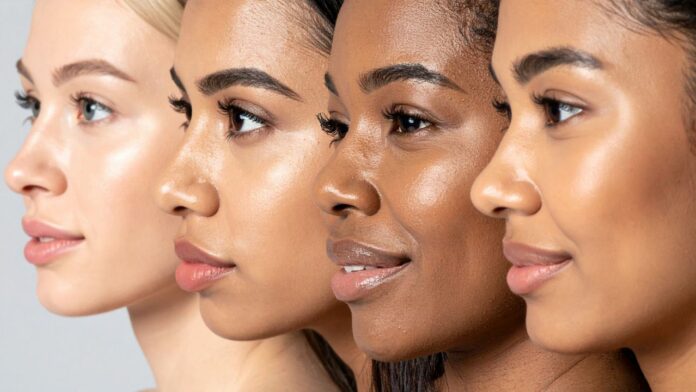Many people spend a lot of time and money looking for the best skin care product, but when they find it, they’re let down. Often, the product itself is not the problem, but the fact that it does not match the person’s real skin type. According to research, properly identifying your skin is important for maintaining long-term health and avoiding damage as well as for maintaining appearance. Irritation, acne, or even early age can result from misreading the signs.
Why Your Skin Type Matters More Than You Think
The skin is the largest organ and your first line of defense. Different skin types have their pros and cons. For example, oily skin naturally makes more sebum, which can prevent dryness but may lead to clogged pores if it is not taken care of correctly. On the other hand, dry skin doesn’t have any oil, so it can get flaky and get fine lines.
If you think you have one type of skin but actually have another, the products you choose may hurt you. When you use harsh cleaners on dry skin, they remove what little natural oil you have. Heavy creams, on the other hand, can clog your pores and make your oily skin shine.
The Science Behind Skin Differences
Your genes, hormones, surroundings, and even your lifestyle influence your skin type. To identify the type, scientists frequently consider factors like oil production, pore size, and oil levels. Dermatologists assert that these differences are not merely superficial. Your sebaceous glands, which are under your skin, have a lot to do with how oily, dry, or regulated your skin looks.
Type is also influenced by your skin barrier, which is a layer of proteins and fats that serves as a barrier. If the barrier is strong, it will keep your skin wet and prevent irritation. Your skin reacts more quickly when it is weak, which can often lead to sensitivity. Treating your skin with the care it deserves requires understanding this science.
Common Types and Their Challenges
- Oily skin: It is marked by extra shine, bigger pores, and a lot of breakouts. Items that are light and won’t clog pores are necessary.
- Dry skin: It feels tight, rough, or flaky a lot of the time. Needs to be hydrated and have protective ingredients like ceramides.
- All together Skin: The T-zone (forehead, nose, and chin) is oily, but other parts of the skin are normal or dry. The skin requires care to maintain its balance.
- People with sensitive skin get redness or burning easily. Gentle, scent-free products are best for taking care of them.
- Normal skin is well-balanced, but it still needs regular care to stay healthy.
How Getting It Wrong Can Hurt Your Skin
A common mistake people make is misidentifying their skin type, leading them to treat the wrong problem. People with oily skin may use excessive treatments that dry out their skin, causing it to produce even more oil. In the same way, someone with sensitive skin might try too many active ingredients at once, which could lead to redness and damage to the layer that keeps the skin safe.
Over time, these errors can lead to persistent problems. Too much oil buildup makes acne scars more likely, and too much dryness speeds up the appearance of fine lines. This is why professionals stress how important it is to know your type before starting a routine.
The Bare-Faced Method for Checking Your Skin
One simple test can help you figure out what type you are. Pat your face dry after washing it, then wait an hour before applying anything. Then look at
- Tightness means that you are dry.
- If your whole face is shiny, it means your skin is oily.
- If your skin only shines in the T-zone, you probably have mixed skin.
- Redness or discomfort are indicators of sensitivity.
This test is a useful place to start, but getting help from a professional can give you a better picture.
Why Expert Guidance Helps
Self-testing can be helpful, but skin is complicated. Over time, your type can change because of things like food, climate, age, and hormones. That’s why it’s often best to get help from experts. They not only tell you your skin type, but they also offer products and routines that match your skin’s particular needs.
You can choose better products and routines by using resources like the Renee Rouleau website, which provides science-based information.
Final Thoughts
Your skin type isn’t just a number. What it shows is how your skin works and needs to stay healthy. If you don’t understand it, it can set you back and cause long-term issues, but if you do, you can make a routine that supports balance and beauty.
If you don’t know where to start, Renee Rouleau’s website and other reliable skincare tools can help you find routines that work for your skin instead of against it

